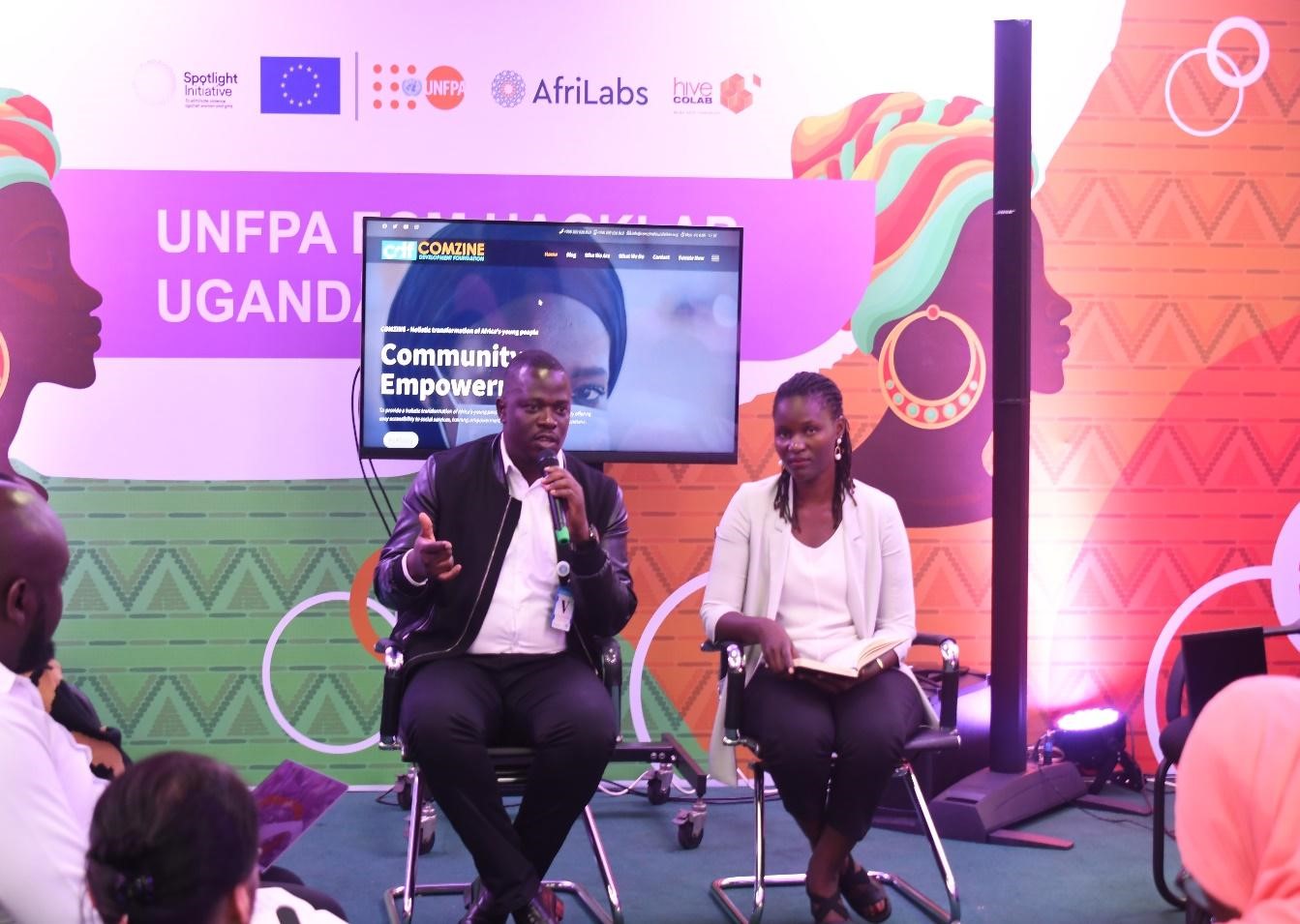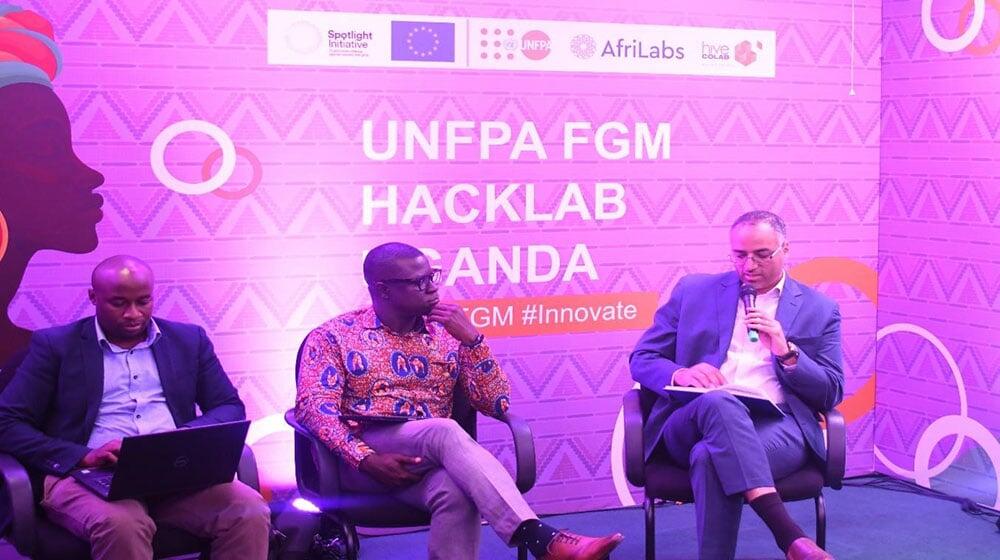KAMPALA: On 27 - 28 March 2023, the UNFPA HackLab Support Hub Project Visited Uganda. Supported by the UNFPA East and Southern Africa Region Office (ESARO), the two-day site visit intended to inform incubation design and implementation, strengthen the collaborative partnership with implementing partners and assigned innovators and provide an opportunity for partners to share their lessons learned best practices, successes, and concerns.
The first day of the UNFPA FGM HackLab project took place at Hive Colab Hub in Kampala which was an opportunity for UNFPA representatives to learn more about the innovative work being done in the region and to engage with partners.
Day two of the event took place at UNFPA Uganda Country Office, presided by the Deputy representative Mr. Daniel Alemu.
This meeting involving representatives from ESARO met with innovators and other developing partners to identify opportunities for collaboration and integration of innovation solution in the UNFPA and other agencies country programme delivery, strengthen the environment for potential future collaboration and communication between the innovators and the UN country offices, facilitate opportunities for access to markets for the solutions with local development partners through facilitated discussions; and draw a roadmap for technical inputs as well as implementation in Uganda.
In his remarks, UNFPA Deputy Representative Uganda, Mr. Daniel Alemu reaffirmed UNFPA’s commitment to using innovation as an accelerator and a way of doing business across all areas of the organization's mandate.
“We need people from within the community to come and propose some of the solutions because the best solutions come from within,” Mr. Alemu said.
Sydney Hushie, Innovation specialist from UNFPA Esaro regional office, stated that UNFPA is looking forward to supporting the mainstream of technology so as to support innovation in low income settings as well as ensuring non-connected young people and communities build partnerships and grow on innovation ecosystems.
“We want to strengthen our internal capacity and improve the ways of working so that innovators are not the only ones driving innovation within the Uganda country office, but everybody else in the office,” Hushie noted.

In 2021, UNFPA, with support of Spotlight Initiative Africa Regional Programme in partnership with the Joint Programme on the Elimination of Female Genital Mutilation and AfriLabs leveraged AfriLabs’ existing pipeline of innovation hubs across the locations of the innovators to provide robust and intensive 6-months incubation programme, which entails capacity building activities focused on product and business development of the selected innovations, and support with resources and opportunities to produce full-fledged viable and scalable innovations and solutions.
ESARO initiated an innovation project targeting young innovators, especially women and girls, who have innovative solutions that will accelerate efforts towards ending gender-based violence and harmful practices by 2030. Following the evaluation process, four innovators were selected as winners (two winners being from Uganda; Deborah Nassanga and Joseph Mulabbi) in a final pitch event after the boot camps which ultimately qualified them for an AfriLabs-implemented 6 months’ business incubation programme.
Nassanga’s winning solution was a mobile app that collects and analyses crowdsourced anonymous reports on FGM practices, while Joseph Mulabbi’s winning solution was a mobile platform that empowers victims and survivors to get help - linking them to the right service providers.
Mr. Joseph Mulabbi, one of the innovators, elucidated that they are trying to develop a mobile app on an online platform for people who do not have access to the Internet in the hard-to-reach areas.
“Poverty is a lead factor that is facilitating FGM in those various communities as well the absence of professional mentors and councilors,” he said.
Mr. Mulabbi’s mobile platform enables the user to make a toll-free call to a community volunteer to report incidences of FGM and links them to the right service provider.
- Written by Emmanet Nabwire


